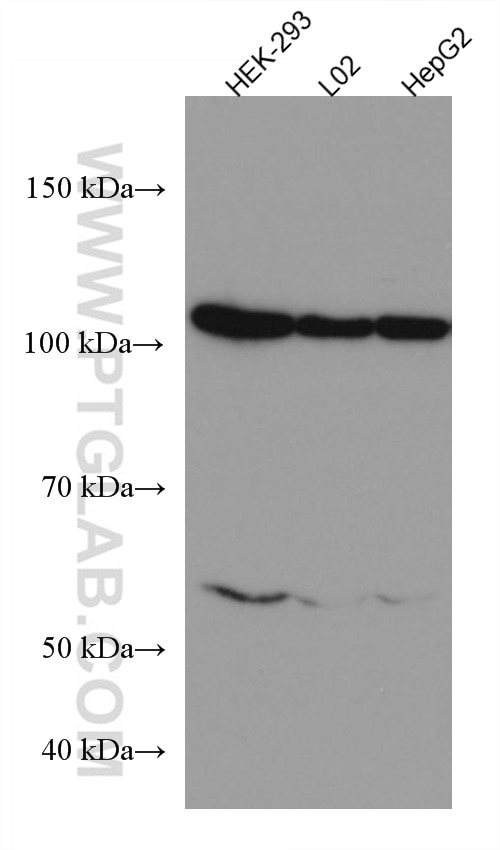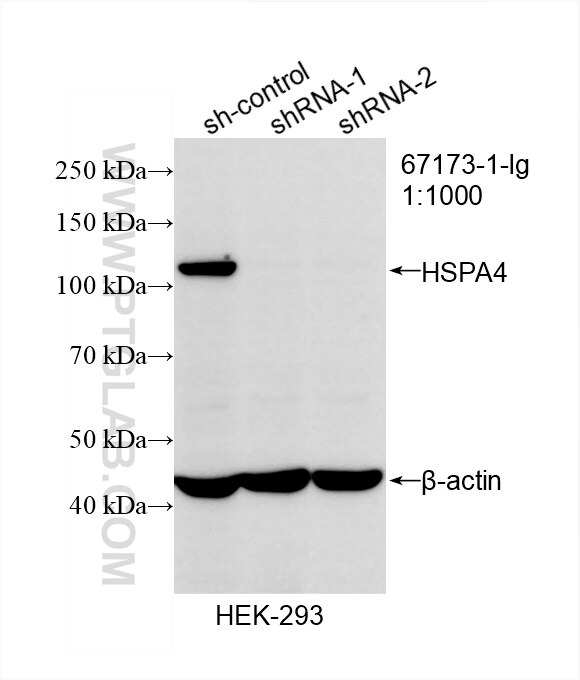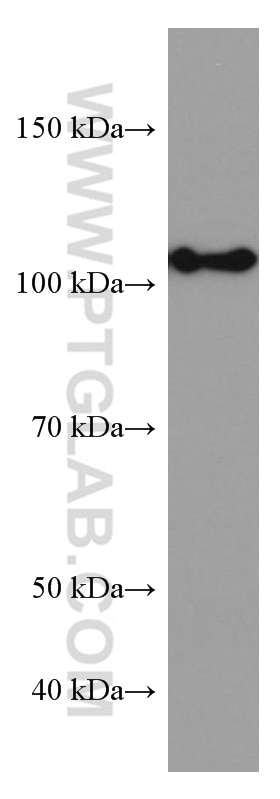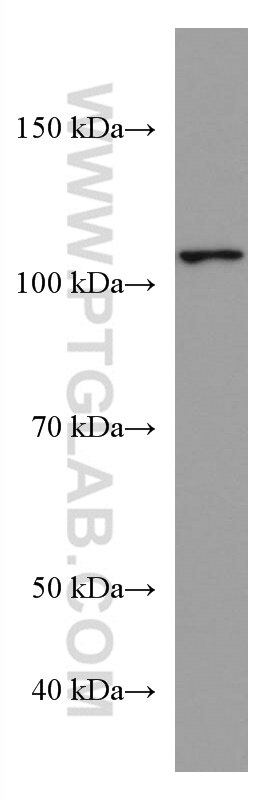Tested Applications
| Positive WB detected in | HEK-293 cells, Jurkat cells, pig brain tissue, HepG2 cells, L02 cells |
Mouse monoclonal antibodies of IgM isotype can be detected with "anti-mouse IgG (H+L)" secondary antibodies.
Recommended dilution
| Application | Dilution |
|---|---|
| Western Blot (WB) | WB : 1:1000-1:4000 |
| It is recommended that this reagent should be titrated in each testing system to obtain optimal results. | |
| Sample-dependent, Check data in validation data gallery. | |
Product Information
67173-1-Ig targets HSPA4 in WB, ELISA applications and shows reactivity with human, pig samples.
| Tested Reactivity | human, pig |
| Host / Isotype | Mouse / IgM |
| Class | Monoclonal |
| Type | Antibody |
| Immunogen |
CatNo: Ag16624 Product name: Recombinant human HSPA4 protein Source: e coli.-derived, PET28a Tag: 6*His Domain: 680-840 aa of BC110861 Sequence: NLGQPIKIRFQESEERPKLFEELGKQIQQYMKIISSFKNKEDQYDHLDAADMTKVEKSTNEAMEWMNNKLNLQNKQSLTMDPVVKSKEIEAKIKELTSTCSPIISKPKPKVEPPKEEQKNAEQNGPVDGQGDNPGPQAAEQGTDTAVPSDSDKKLPEMDID Predict reactive species |
| Full Name | heat shock 70kDa protein 4 |
| Calculated Molecular Weight | 840 aa, 94 kDa |
| Observed Molecular Weight | 110 kDa |
| GenBank Accession Number | BC110861 |
| Gene Symbol | HSPA4 |
| Gene ID (NCBI) | 3308 |
| RRID | AB_2882469 |
| Conjugate | Unconjugated |
| Form | Liquid |
| Purification Method | Caprylic acid/ammonium sulfate precipitation |
| UNIPROT ID | P34932 |
| Storage Buffer | PBS with 0.02% sodium azide and 50% glycerol, pH 7.3. |
| Storage Conditions | Store at -20°C. Stable for one year after shipment. Aliquoting is unnecessary for -20oC storage. 20ul sizes contain 0.1% BSA. |
Background Information
HSPA4 (also known as Apg-2, HSP70RY) is a 110 kDa cytosolic protein, a member of the heat-shock protein 110 (Hsp 110) subfamily of Hsp70 proteins which are highly conserved chaperons implicated in protein folding, protein refolding, protein transport, and protein targeting. HSPA4 is ubiquitously expressed and its expression is not heat inducible. Overexpression of HSPA4 has been reported in some leukemia and solid tumors.
Protocols
| Product Specific Protocols | |
|---|---|
| WB protocol for HSPA4 antibody 67173-1-Ig | Download protocol |
| Standard Protocols | |
|---|---|
| Click here to view our Standard Protocols |










